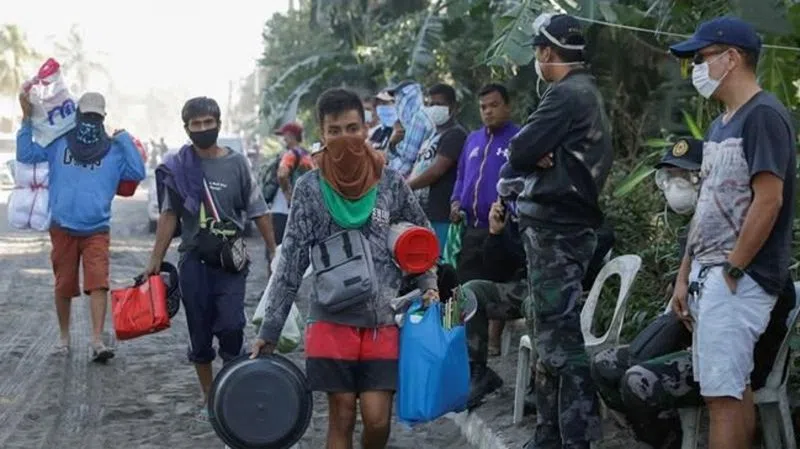
Officials block villagers as quakes shake Philippine volcano
LEMERY, Philippines — A Philippine volcano that erupted last weekend belched smaller plumes of ash but shuddered frequently with earthquakes Thursday, prompting authorities to block access to nearby towns due to fears of a bigger eruption.
A crater lake and nearby river on the Taal volcano dried up in signs of its continued restiveness, and officials have warned people against speculating that the five-day eruption is waning.
“We have a seeming lull, but, again, as we emphasized earlier, there is something different happening beneath the volcano,” Ma. Antonio Bornas of the Philippine Institute of Volcanology and Seismology told reporters, citing continued tremors, steaming and other signs of magma movement.
Renato Solidum, who heads the institute, said it may take up to two weeks for experts to assess whether the volcano’s restiveness has eased. The Taal area has remained just a notch down from the highest level of a five-step alert system the institute uses to warn the public of a volcano’s danger.


